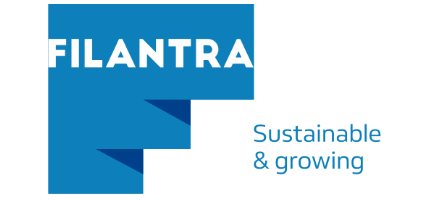PERTAMINA TBBM JAYAPURA: EDUCATION, IMPORTANT IMPROVEMENT OF HDI
As a national energy company, Pertamina is committed to always prioritizing the balance and sustainability of nature, environment and society, by improving human, natural and environmental welfare, Pertamina will be able to achieve sustainable business growth. Pertamina has established several strategic initiatives as a form of commitment, one of which is sustainable community empowerment (through education, behavior change, mindset, and skills and health training). Pertamina has worked to increase public awareness of the importance of children’s education and support the development of the capacity of illiterate and school dropouts through informal education as well as providing access to school dropouts for equal education.
Challenge
The value of the Human Development Index (Human Development Index (HDI) 2010-2015 in West Papua is 61.73, while Papua has a value of 57.25. While the average value of HDI in Indonesia is 69.55. (Source: UNPD, 2017) HDI measures the achievement of the average citizen in a country in terms of human development. The variables measured include health, life expectancy, education and living standards. Besides the low HDI value, the inflation rate in West Papua and Papua is quite high. Many children are forced to drop out of school because they have to work to support the family economy.
Data from the United Nations Children’s Fund (UNICEF) shows that 30% of Papuan students do not complete their elementary and middle school. In the interior, around 50% of elementary school students and 73% of junior high school students choose to drop out of school. Geographical conditions are one of the factors that make it difficult for Papuans to get an education.
PT Pertamina TBBM Jayapura as a company that has a strong commitment to help the Jayapura city government reduce the number of school dropouts, reduce the number of illiterate people and improve the quality of human resources in communities around the operational area.
Our strategy
Filantra and PT Pertamina TBBM Jayapura carry out strategies in the community, in many cases community development is something new for the institution and community facilitators. Many institutions or assistants have only done and are involved in community development activities for the first time so that an entry strategy is needed in the community to be accompanied. The entry strategy aims to build relationships with the community and as an initial effort to understand the community quickly. The indicator of the success of the entry strategy is the acceptance of institutions and assistants by the community. To begin with, the Rapid Rural Appraisal (RRA) method is the first step to be taken so that community development activities that are carried out are on target and in accordance with the needs of the community in the region.
The theory of collective action was first formulated by Mancur Olson (1971), especially when discussing the problems of interest groups. This theory is very useful to overcome the problem of free riders and design joint solutions for the management of common resources or the provision of public goods. According to Olson, the determinants that are important for the success of collective action are size, homogeneity and group goals (Yustika, 2013).
Referring to Olson’s opinion, the greater the size of a community, the more difficult it is to negotiate interests among members of the community. The more diverse the interests of community members, the more difficult it is to formulate an agreement because each group member brings his own interests, and vice versa. The purpose of the group / community must be focused on taking into account the interests of all group members (Yustika, 2013). As explained above, collective action is built on common interests and objectives and is initiated from small groups.
Joint issues must be built so that the community focuses on community development goals, one of which is to reduce dropout rates, improve reading skills and desires, reduce school absenteeism, and smart homes are a solution, smart homes with mentoring & empowerment programs the community in the field of education especially in overcoming illiteracy problems, decreasing school participation, and the number of school dropouts.
Results and Impact
Filantra and Pertamina TBBM Jayapura with assistants can start from the small size of community groups by building local champions involved in community development and inviting other wider community members to be involved in collecting data and information. The rapid rural assessment techniques (RRAS) used in collecting data and information are tools for building community critical awareness of themselves and their area and the impact that is given.Increased awareness of beneficiaries & parents regarding the importance of education
- Increased ability to read beneficiaries
- The number of beneficiaries increased reading skills
- Implementation of the parenting class
- Increased insights into drop-out beneficiaries regarding education equalization learning materials
- Formation of Community Groups to educate
- Home Visit is carried out to Beneficiaries as a form of communication between facilitators and parents of beneficiaries
- The initiation of the establishment of a Teaching and Learning Activity Center
We hope that these foremost efforts will inspire other companies, as well as their partners in the public sector and civil society, to take a more holistic view of community empowerment in a sustainable manner (through behavioral change education, mindset, and skills and health training).
Picked Lessons
Doing this work with Pertamina allows us to translate what we know about the importance of education. Here are some suggestions for companies interested in exploring education as follows:
- Starting from the small, start with a choice of facilities, locations, or products that represent important aspects of the company’s business, this will make it possible to identify the most useful and important data points before improving the approach throughout the organization.
- Integration into existing systems: namely sustainable community empowerment (through behavior change education, mindset, and skills and health training).

